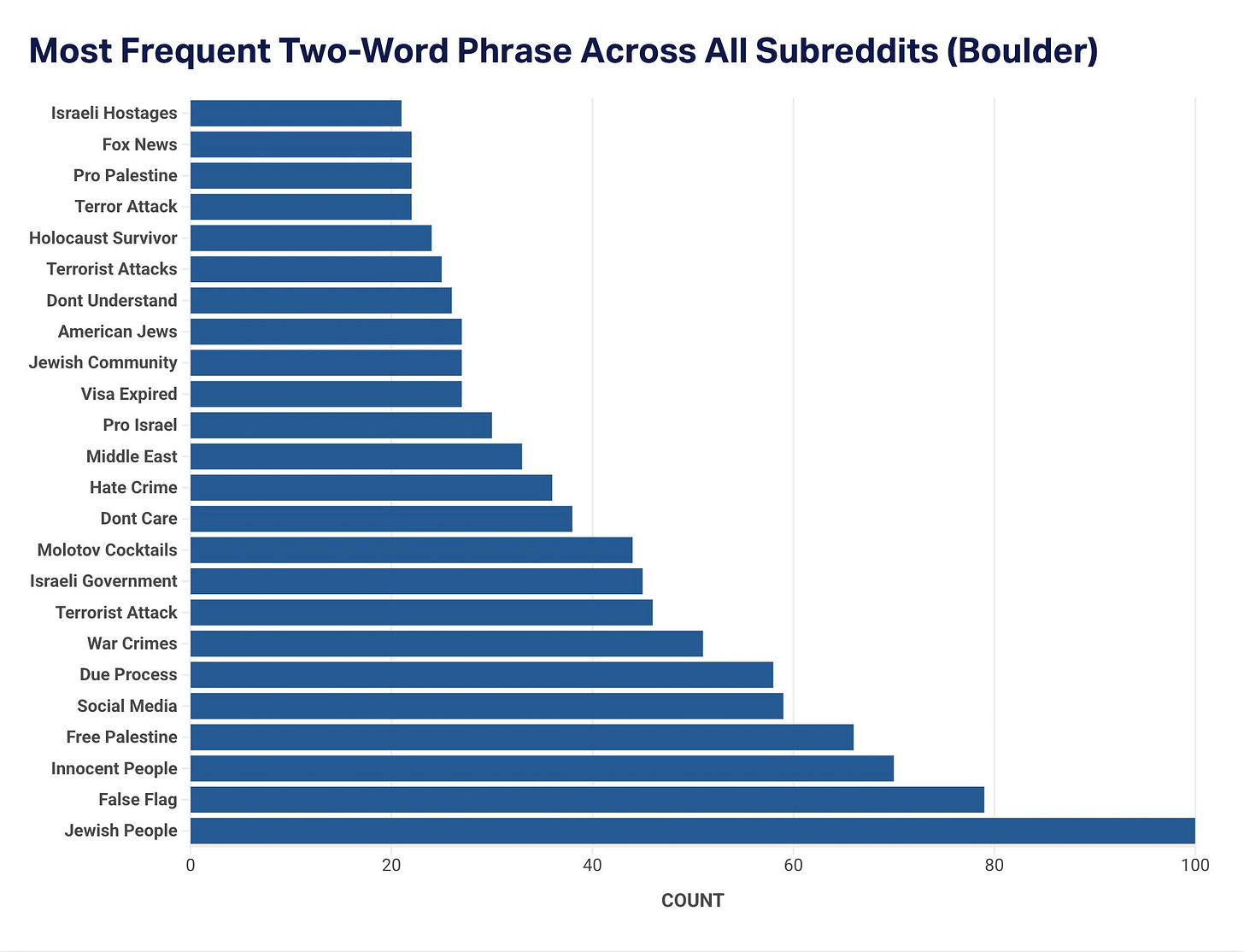The Normalization of Antisemitism in Post-Boulder America: Report
New ADL report reveals growing public justification for violence against Jews — and how conspiracy theories are fueling the fire online

In early June, a deadly firebombing at a pro-hostage rally in Boulder, Colorado, marked yet another alarming escalation in the wave of antisemitic violence sweeping across the United States. Released on July 11, the Anti-Defamation League’s (ADL) “Status Report: Antisemitism in America after Boulder” offers a sobering assessment: while most Americans recognize antisemitism as a serious problem, a significant and growing minority openly justifies, rationalizes, or even supports violence against Jews.
A New Wave of Violence — and Public Apathy
According to the report, 60% of surveyed Americans believe antisemitism is a serious issue, a noticeable drop from 71% in October 2023. More troubling, however, is that 24% described recent antisemitic violence as “understandable,” 13% called it “justified,” and 15% went so far as to say it was “necessary.” These statistics reveal not only an erosion of public concern but a disturbing normalization of violence as a legitimate form of political or ideological expression.

Ideological and Generational Divides Deepen
The report highlights sharp ideological and generational divides. Among Democrats, 67% view antisemitism as a serious threat, compared to 58% of Republicans. But younger Americans—particularly those active on social media—are statistically more likely to express views that either minimize or rationalize antisemitic acts, often tying American Jews directly to Israeli policy.
Younger Americans were more likely to justify antisemitic violence or attribute it to broader geopolitical tensions, such as the Israeli-Palestinian conflict. These generational trends suggest that antisemitism is no longer confined to the political fringe but is steadily seeping into mainstream political culture, often cloaked in anti-Zionist rhetoric.

Online Conspiracies Fuel Real-World Hate
Toxic narratives and conspiracy theories continue to dominate online discourse. The ADL found that 34% of respondents believe American Jews are more loyal to Israel than the United States, while 30% believe Jews have too much influence in media and politics. These classic antisemitic tropes were amplified in the wake of recent violent incidents. For instance, the phrase “false flag” surged across thousands of Reddit posts discussing the Boulder and Washington, D.C., attacks.
Some users speculated that Jews or Israelis staged the attacks themselves to gain sympathy, with one Redditor writing, “Honestly wouldn’t put sabotage past Israelis… this coulda been an inside job.” Others alleged that the DC shooting was orchestrated to “distract from starving children in Gaza,” further entrenching the narrative that Jewish suffering is manipulative or illegitimate.

The Algorithmic Threat: Antisemitism in the Age of AI
According to the ADL, antisemitic narratives increasingly permeate AI language models and digital tools. Phrases such as “false flag” or tropes around Jewish power are not only circulated by individuals but are also at risk of being learned and reproduced by automated systems.
Despite platform moderation efforts, harmful content has persisted and, in some cases, expanded its reach. The interplay between online speech and AI technologies represents a growing challenge for moderation and counter-extremism efforts.
Public Attitudes Toward Intervention
While some respondents rationalize antisemitic incidents, the report also highlights significant public support for preventive measures. Eighty-two percent of respondents support removing hate speech from social media. Seventy-four percent believe colleges should be held accountable for allowing harassment of Jewish students. Sixty-four percent support increased security at synagogues.
These findings suggest an opportunity for bipartisan and institutional responses to antisemitism, even as attitudes toward its causes can sometimes be polarized.

Areas Requiring Further Investigation
The ADL report identifies several trends that warrant deeper scrutiny. These include generational shifts in antisemitic attitudes, the influence of social media on radicalization, and the role of artificial intelligence in spreading or reinforcing harmful narratives.
Understanding how digital ecosystems interact with public sentiment will be critical for developing effective policy and educational strategies. Future studies may also need to assess how international conflicts influence domestic expressions of hate, particularly in online environments.


